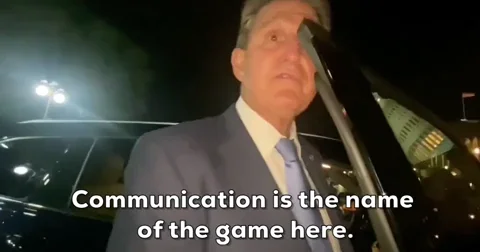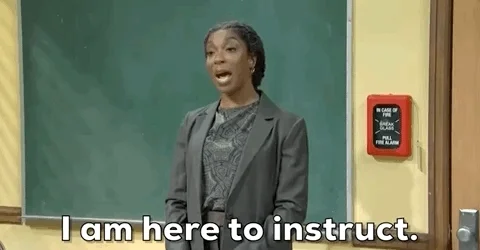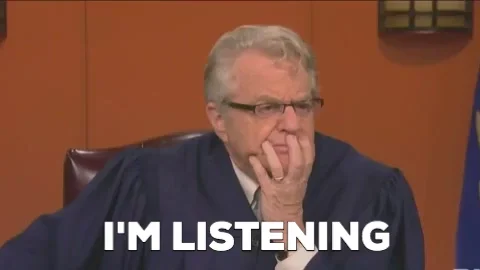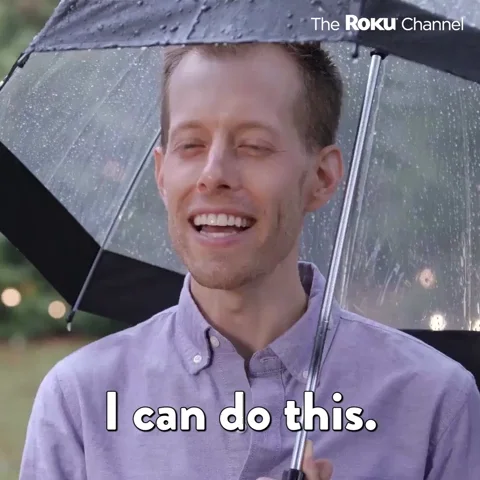Want to boost your impact in and out of the classroom? Make your words matter with effective verbal communication skills!
Because educators are building, creating, and sharing knowledge with others, it's important to know how to speak and listen well.
Effective communication will boost your impact in and out of the classroom whether you're a teacher, administrator, or school board member.

In developing verbal communication skills, consider:
How do you present your content with effective communication?
How do you ensure your students understand what they learn?
Does building relationships increase the impact of your work?
How do you show your students that you're listening to them?
Build upon these four aspects of verbal communication to enhance your educational career.
#1: Presenting content and ideas with others
An essential aspect of communication lies in how you deliver and explain information. What you present should not only be understood by others but also accessible to all learners.
 The content and ideas you present should be accurate, clear,and inclusive of various forms of learning.
The content and ideas you present should be accurate, clear,and inclusive of various forms of learning.

When presenting content, you should...
ensure that all of your information is correct and up-to-date
simplify the information to include the most important points
speak loud and clear so all can hear
use simple language and vocabulary
share your information in various formats
engage with the audience

Tips to develop this skill:
cross-reference your information with other sources for accuracy
use bullet points to highlight the most important facts
practice what you'll be presenting so you can speak with confidence
use a microphone if needed
use multimedia tools (examples, videos, images, data, subtitles) for visual and auditory support
make eye contact, use hand gestures, and walk around
Quiz
Mr. Pham teaches biology. There are a few French students in his class who are English language learners. Which strategy should Mr. Pham use to best ensure his content is accessible to all learners?
#2: Scaffolding students' understanding
When students struggle to understand a concept, break the information down by scaffolding. Scaffolding involves supporting students and slowly withdrawing support as they become more competent. Build students' confidence through guided practice before they can do it on their own.

Use effective verbal communication skills to break down information by avoiding overloading information, reducing unnecessary details, and addressing areas of confusion.
 Scaffolding includes providing...
Scaffolding includes providing...
guiding questions ("How would you...", "Why do you think...")
feedback on areas of improvement
examples and step-by-step instructions
think time to process information
opportunities for collaboration
 Tips to develop this skill:
Tips to develop this skill:
ask the five Ws (who, what, when, where, why) and how
give specific tips that will help learners overcome their areas of confusion
provide action steps and practice for students to implement your feedback
allow learners to discuss ideas and work on problems in groups
Quiz
Miranda is working on an activity analyzing the effectiveness of a political speech. She is struggling to find key techniques that make the speech powerful and has struggled with similar tasks before. What are some ways to guide her to thorough analysis?
#3: Building relationships with others
Teaching is a social career that runs on positive relationships. According to the University of Missouri, positive teacher-student relationships result in more engaged and motivated students. When students feel genuine care and support from someone they look up to, they present and perform as their best selves.

Don't just teach the content — talk to the students and get to know them! Verbal communication skills are key to building relationships by establishing trust and positive rapport.
 Positive relationships involve:
Positive relationships involve:
greeting students in the classroom and around campus
understanding students as unique individuals (know their names and interests)
getting involved in students' activities on campus (clubs, sports games)
letting students know you as a person rather than just a teacher
 Tips to develop this skill:
Tips to develop this skill:
say hello when students enter the classroom or walk around campus
play icebreakers that allow students to know one another (classmate bingo, two truths and a lie)
volunteer as a club advisor or attend students' sports games to show support
sharing your personality through your attitude and classroom decor
#4: Active listening and reflecting
Strong verbal communication is a reciprocal process of speaking and listening. When students have something to share, listen actively.
Active listening involves focusing on what the speaker is saying, reflecting on their words, and responding appropriately. This engages everyone in a meaningful conversation and makes it clear that you are here for them.

Focusing on the conversation helps you understand the speaker's point of view. Pausing to reflect after the person finishes speaking avoids a judgemental reaction or opinion. With a clear mind and understanding of what was said, respond appropriately and contribute to the conversation.
 Active listening includes:
Active listening includes:
focusing on the speaker's words and feelings
avoiding interrupting or being distracted
waiting for the speaker to finish before sharing your thoughts
using non-verbal communication to show engagement
 Tips to develop this skill:
Tips to develop this skill:
validate the speaker's feelings to have them feel heard
converse in a peaceful environment with fewer distractions
avoid jumping to conclusions and providing an opinion right away
use positive body language (eye contact, nodding)
Take Action
A career in education is rewarding because you get to interact with learners like you. Sharing what you know and can do to support others is key because it is a skill that will grow with your career.
Whether you're a teacher, administrator, or school board member, developing strong verbal communication skills will help you and your learners build and share knowledge with the world.

Amplify your career in education with effective communication by:
Your feedback matters to us.
This Byte helped me better understand the topic.
